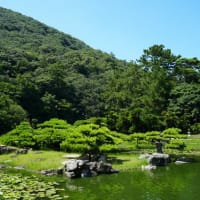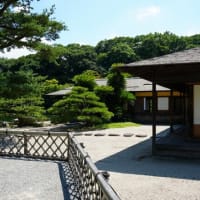The following is from an article by Yoshihisa Komori, the Sankei Shimbun's visiting correspondent in Washington, D.C., which appeared in today's Sankei Shimbun with the title "The Peace of Power" in U.S. policy toward China.
The emphasis in the text and the notes below* mines.
In addition to the outbreak of the new coronavirus in the United States, it is the Chinese administration that would most welcome the expansion of the racial protests.
*The employees of the Asahi Shimbun and the people who control the NHK news department would have welcomed them .*
Recently, it was filled with jubilant articles to the effect that the Chinese official media, People's Daily and the Global Times, have published a report titled 'The Trump Administration's Crackdown on Its People and the Hypocrisy of blaming China for the Hong Kong problem! '
So how does this current situation affect U.S. policy toward China?
Will it shake the strong stance the U.S. has taken to date to deter China?
The key to answering this question is the policy document the Trump administration sent to Congress at the end of May, which is titled 'The United States' Strategic Approach to China.'
The document's content was a declaration of an all-out confrontation with China, which aims to deter China, which is seen as a threat to the international order led by the United States in the three areas of economics, values, and security.
The document, which calls on both the House and Senate to take budgetary measures for full confrontation, is the most forceful statement of China policy by the Trump administration to date.
The core of that comprehensive policy was the following four summaries 'implementation measures.'
(1) Protecting the American people, land, and way of life
U.S. government departments and agencies crackdown on Chinese economic espionage, public opinion operations, and political conspiracy (China's diplomacy in the United States). Strictly monitor officials and international students and consider Chinese official media personnel as agents. We are preventing the Chinese from using their influence on U.S. research institutions and universities, interfering in the communications field, and stealing advanced technology, working with our allies, and preventing intelligence and cyberattacks from China.
(2) Protecting America's Prosperity.
End unfair economic practices such as China's theft of intellectual property rights and other unfair industrial practices to protect the interests of the U.S. industry, workers, and consumers.
We will also eliminate unfair Chinese challenges in the areas of fifth-generation (5G) mobile communications systems and artificial intelligence (AI).
Work with Japan and Europe to eliminate practices by Chinese state-owned and state-run companies that distort market principles, unfair government subsidies, and forced illegal technology transfers to companies in other countries.
(3) Keep the peace through U.S. power.
Maintain deterrence against China's massive military buildup by strengthening both nuclear and conventional forces.
We will force China to reduce the world's most massive arsenal of medium-range missiles.
Curbing China's military expansion in space and cyber.
Work with Japan to thwart China's military hegemony in the Indo-Pacific and provide maximum military support to Taiwan's ability to defend itself in the event of a contingency.
(4) Expand U.S. influence.
Curb China's dictatorial rule, repression of speech, corruption, predatory economic practices, and prohibition of ethnic and religious diversity through international cooperation to expand U.S. values-based influence.
Support basic human rights protections for Uighurs, Tibetans, Buddhists, Christians, and the qigong group Falun Gong.
It places particular emphasis on the freedoms and rights of Hong Kong's residents. Also, it calls for China to strictly adhere to its international commitments to one country, two systems.
The U.S. government has pledged above to confront and deter China's words and actions that violate international norms and democratic principles in all areas of domestic and foreign affairs.
The foundation of this pledge was the Trump administration's flaunted "peace of power" posture through the most massive military buildup in history.
The Trump administration, moreover, had repeatedly stressed that it would unite with Japan and other allies in a confrontation with China.
That stance seems to leave no doubt about which side Japan will take with the United States and China.



















